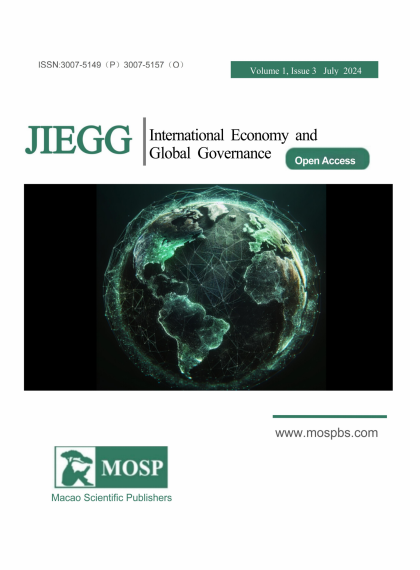-
Central Committee of the Communist Party of China. Decision on Major Issues Concerning Comprehensively Promoting the Rule of Law [N]. People's Daily, 2014-10-29(001).
-
Action Outline for Promoting the Development of Big Data [M]. Beijing: People's Publishing House, 2015:9.
-
Outline of the 13th Five-Year Plan for National Economic and Social Development of the People's Republic of China [M]. Beijing: People's Publishing House, 2016:63.
-
Regulations of the People's Republic of China on Open Government Information [L]. 2019-04-03:, 2019.
-
Central Committee of the Communist Party of China. Decision on Major Issues Concerning Upholding and Improving the Socialist System with Chinese Characteristics and Promoting the Modernization of the National Governance System and Governance Capacity [M]. Beijing: People's Publishing House, 2019:18.
-
Xia Jinlai. Legalization of Big Data Administrative Decision-Making [J]. Comparative Law Research, 2023(3):138.
-
Keith Michaelhearit, Jeffrey L. Count Right. A Social Constructionist Approach to Crisis Management: Allegations of Sudden [J]. Communication Studies, Spring 2003(54):118.
-
Haffajee R, Parmet WE, Mello MM. What Is a Public Health "Emergency"? [J]. New England Journal of Medicine, 2014, 371(11):986-988.
-
Guo Xingwang. Sudden Public Incidents: An Inescapable Topic [J]. China Development Observation, 2005,(05):4-8.
-
Wang Gaoling, Bie Rue. Analysis of Government Functions in Sudden Public Health Incidents from a Social Management Perspective [J]. Chinese Public Administration, 2011,(11):20-23.
-
Xiao Wentao, Zeng Huanglin. Response to Government Affairs Public Opinion on Sudden Incidents: Situations, Dilemmas, and Countermeasures [J]. Chinese Public Administration, 2017,(12):111-116.
-
An Lu. Analysis of Online Public Opinion on Sudden Incidents [J]. Information and Documentation Services, 2020, 41(06):5.
-
Arthur C. Upton. Workshop on the Role of Government in Health Risk Communication and Public Education [Z]. Washington D.C. New York: Plenum Press, 1989.
-
Emergency Response Law of the People's Republic of China [L]. 2007-08-30:, 2007.
-
Liu Heng et al. Government Information Disclosure System, China Social Sciences Press, 2004 Edition, p. 1.
-
Zhu Yougang. Research on Government Information Disclosure from the Perspective of Service-Oriented Government [D]. Shandong University, 2012.
-
Hu Shui. Research on the Problems and Countermeasures of Government Information Disclosure in Jintan District, Changzhou City under the New "Regulations on Open Government Information" [D]. Soochow University, 2023.
-
Regulations of the People's Republic of China on Open Government Information [L]. 2019-04-03:, 2019.
-
Lu Lin. Breaking Through the Dilemma of Government Information Disclosure in China [J]. Administrative Forum, 2003,(04):38-39.
-
Hong Wei. On Citizens' Right to Know and Government Information Disclosure [J]. Journal of Zhejiang Normal University, 2003,(05):73-76.
-
Zhang Mingjie. Open Government: Research on Government Information Disclosure Legal System, China University of Political Science and Law Press, 2003 Edition, p. 198.
-
Regulations of the People's Republic of China on Open Government Information [L]. 2019-04-03:, 2019.
-
Kong Fanhua. Procedural Government Information and Its Exemption from Disclosure [J]. Legal and Business Research, 2015, 32(05):130-138.
-
Yao Ruimin, Wang Jie. Status and Development Trend of County-Level Government Online Information Disclosure: Based on Evaluation Data of 124 County-Level Government Portals in China [J]. Administrative Forum, 2016, 23(06):76-82.
-
Zhu Hongcan, Yu Kaixi. Research on Public Satisfaction Evaluation of Government Information Disclosure [J]. Library and Information Service, 2012, 56(03):130-134.
-
Yan Bo, Li Hongbo, Wu Jiashun, Wu Jiannan. Factors Influencing Government Information Disclosure: An Empirical Study of Provincial Governments in China [J]. Contemporary Economic Science, 2013, 35(06):67-77+124-125.
-
Ma Liang. Information Disclosure, Administrative Accountability, and Government Integrity: An Empirical Study from Chinese Cities [J]. Comparative Economic & Social Systems, 2014,(04):141-154.
-
Yu Wenchao, Liang Pinghan, Gao Nan. Can Disclosure Bring Efficiency? An Empirical Study on the Impact of Government Information Disclosure on Corporate Investment Efficiency [J]. Quarterly Journal of Economics, 2020, 19(03):1041-1058.
-
Luo Kaiyan, Tian Qibo. Government Environmental Information Disclosure and Residents' Willingness to Participate in Environmental Governance [J]. Modern Economic Research, 2020,(07):33-43.
-
Xu Ping, Huang Jie. Government Information Disclosure Based on Public Crisis Management [J]. Lantai World, 2013,(02):8-9.
-
Yang Xiaojun. Government Information Should Not Be Monopolized or Controlled by the Government [J]. Young Journalists, 2012,(25):4.
-
Chen Yuheng. Design Research on Street Classified Garbage Bins Based on the "Broken Windows Theory" [D]. Wuhan University of Technology, 2019.
-
Ma Yuhong, Zhao Yuanyuan, Qiang Yarong. The Broken Windows Effect and Responsibility Diffusion Effect in the Spread of Rumors on Social Networks [J]. Journal of Computer Science and Exploration, 2019, 13(10):1702-1709.
-
Chen Zhaolin, Ding Hailiang, Mo Guangcai. Embedding the "Broken Windows Effect" to Create an Administrative Supervision Environment in China [J]. Journal of the Party School of the CPC Nanjing Municipal Committee, 2008,(04):58-62.
-
Chen Wen. The Generative Mechanism and Dissolution Logic of "Fragmented Governance" in Urban Society [J]. Comparative Economic & Social Systems, 2017,(03):54-63.
-
Han Zhiming. Crossing the Information Asymmetry Trap: The Information Dimension of National Governance Modernization [J]. Jiangsu Social Sciences, 2024,(01):86-96+243.
-
Ma Bing. Research on Government Information Disclosure in Social Security Emergencies [D]. Jilin University of Finance and Economics, 2019.
-
Xie Shoumei, Tang Yi. The Role of Government Information Disclosure in Political Civilization [J]. Modern Information, 2006,(05):216-217+221.
-
Yang Xiaojun. Government Information Should Not Be Monopolized or Controlled by the Government [J]. Young Journalists, 2012,(25):4.
-
Barwick PJ, Lin LL, et al. From Fog to Smog: The Value of Pollution Information [R]. Cambridge: National Bureau of Economic Research, 2019.
-
Zhou Renbiao, Han Zisheng. Research on the Path to Optimize Local Government Public Services from a Digital Perspective [J]. Information Technology and Management Applications, 2024, 3(02):101-108.
-
Duan Guohua, Hou Xiangdong. Government Information Disclosure: Significant Achievements and Promising Future: On the 10th Anniversary of the Issuance of the "Outline for the Comprehensive Promotion of Administration by Law" and the 6th Anniversary of the Implementation of the "Regulations on Open Government Information" [J]. Chinese Public Administration, 2014,(6):9-13.
-
Hu Jingguang, Wang Shucheng. Insights from the Presumption Principle and Methods of Information Disclosure in the United States [J]. Journal of Nanjing University, 2009,(6):34-42.
-
General Emergency Response Plan for National Public Incidents [L]. 2006-01-08:, 2006.
-
Lai Shipan. Accountability, Inertia, and Disclosure: A Study of Local Government Behavior in 97 Public Crisis Events [J]. Journal of Public Administration, 2013, 10(02):18-27+138.
-
Ding Baiquan. Imbalance and Balance: On the Relationship Between Government, News Media, and the Public in Catastrophic Events [J]. Nanjing Social Sciences, 2010,(09):97-102+138.
-
Xiang Liling, Li Wenlong. Illegal and Improper Conduct in Government Information Disclosure and Its Accountability Mechanism in China [J]. Information Theory and Practice, 2015, 38(07):27-30+26.
-
Lin Aijun. Constructing a Positive Interaction Relationship Between Government, Media, and the Public in Information Disclosure [J]. Modern Communication-Journal of Communication University of China, 2009,(02):51-54.
-
Zhang Lanlan. Government and Public Trust Relationship in Sudden Public Incidents [D]. University of International Business and Economics, 2007.
-
He Yanling. From "Control" to "Balance": Constructing and Institutionalizing the Ideal Relationship Model Between Government and the Public [J]. Xuehai, 2003,(05):96-104.

